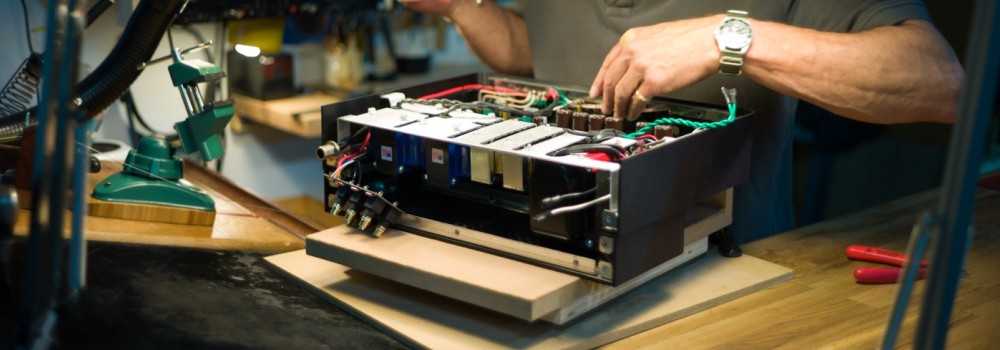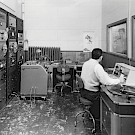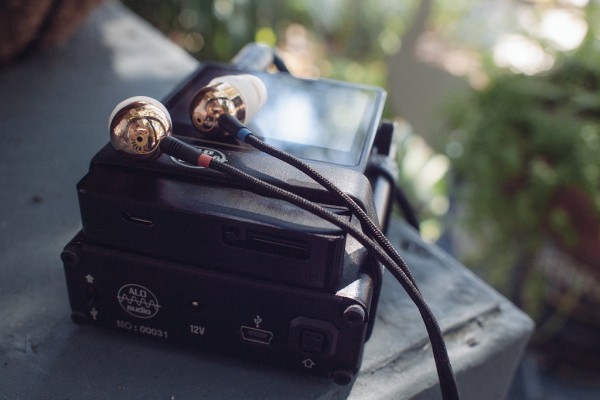 Back in the ‘60s and ‘70s, music and hi-fi tended to be more communal pursuits, but today in the 21st century, personal audio is the current trend. It seems everywhere you go, whether walking down the street, on a crowded bus, or waiting in line at the airport, people have a pair of headphones glued to their heads.
Back in the ‘60s and ‘70s, music and hi-fi tended to be more communal pursuits, but today in the 21st century, personal audio is the current trend. It seems everywhere you go, whether walking down the street, on a crowded bus, or waiting in line at the airport, people have a pair of headphones glued to their heads.
For some, it never goes further than the standard buds, or in-ear headphones, that came with their portable player or iDevice, while many others sport stylish phones from Beats Electronics, which Apple recently purchased for $3 billion. Still others take an all-out assault to personal audio, using headphone rigs that can cost as much as a used luxury car. My recent travels seem to be revealing more of the latter, proving that audiophiles are everywhere—the sky’s the limit.
Taking It to the Street
Usually, the first step to increasing your involvement in personal audio is a set of upgraded headphones. Wading through all of the specs can be daunting at best and confusing at worst, but if you are sticking with your phone or portable music player, there is one spec to pay attention to: impedance. Look for headphones with an impedance of 50 ohms or less—quite a few of today’s phones fall in the 32-ohm range, which is easy to drive by the small amplifier built into your iPhone or Galaxy. Higher impedance phones will work—they just won’t play as loud.
For those less technically inclined, impedance is the load that the headphones present to the amplifier you plug them into, whether that’s your laptop, portable device or headphone amplifier. The greater the impedance, the more amplifier power you will need to produce sound with the headphones you are trying to use. Typically, portable players and phones have the lowest power output so they tend to work best with low-impedance designs.
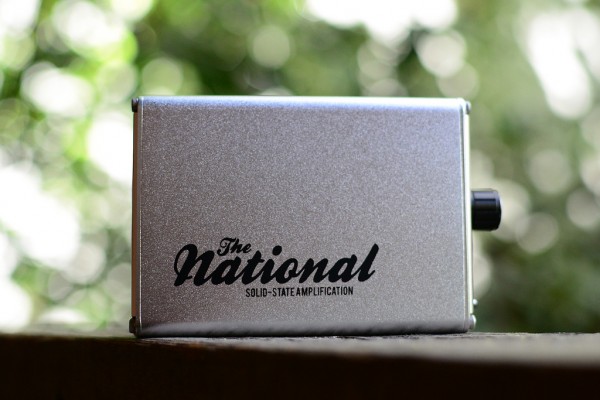 There are two ways to further improve your headphone experience: an external headphone amplifier and a digital-to-analog converter, or DAC for short. Fortunately, some of the world’s finest headphone amplifiers and portable DACs are made right here in SE Portland at ALO Audio.
There are two ways to further improve your headphone experience: an external headphone amplifier and a digital-to-analog converter, or DAC for short. Fortunately, some of the world’s finest headphone amplifiers and portable DACs are made right here in SE Portland at ALO Audio.
An external headphone amplifier can be as big as a regular stereo amplifier that you’d see in someone’s living room, but many are the size of an iPhone—the perfect choice for powering a high-quality set of headphones on the go, offering more power and better sound quality. A more robust headphone amplifier will play your music considerably louder with a lot less distortion than your phone, so be careful not to damage your ears when listening at high volume.
ALO’s The National ($299) plugs into the line level, or headphone jack, on your portable device bringing a world of sound that you won’t believe, especially if it’s your first time—and even with your stock earbuds. But add a modest pair of audiophile phones from Sennheiser, Grado or Beats (ALO can help you with this purchase) and it’s a whole new dimension of inner fidelity—the perfect way to get your feet wet with an upgraded amplifier.
To DAC or Not to DAC
The next upgrade—and it’s not minor—is to add an external DAC to the mix. Currently, your iPod has a DAC and amplifier built in, but these are relatively generic devices that are built to fit inside the tiny case—performance is not the deciding factor. By getting these functions out of the pod and optimized for peak performance, sound quality increases exponentially. Highs are higher and you’ll actually hear real bass for the first time. A DAC takes the digital bitstream (the ones and zeros) from your MP3 files and converts them to an analog signal to be amplified and sent to your headphones. If you’re listening to vinyl, you won’t need a DAC—you’re already in the analog domain.
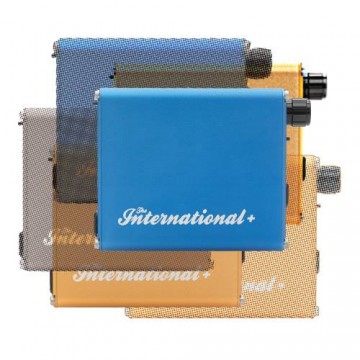 ALO’s The International+ ($599) incorporates a DAC and high-performance headphone amplifier into a single box, connecting to your mobile device via USB cable. Most hard-core portable audio enthusiasts just rubber band their external amplifier right to their iPod so it all stays in one place. Again, the folks at ALO can help you with one of their high-performance cables to make sure the signal integrity is kept to the maximum.
ALO’s The International+ ($599) incorporates a DAC and high-performance headphone amplifier into a single box, connecting to your mobile device via USB cable. Most hard-core portable audio enthusiasts just rubber band their external amplifier right to their iPod so it all stays in one place. Again, the folks at ALO can help you with one of their high-performance cables to make sure the signal integrity is kept to the maximum.
Using an external DAC takes the digital bitstream from your portable player, bypassing the less than awesome one built into your portable device. If you’ve ripped the files in a lossless format like FLAC or Apple Lossless, you can now get CD quality sound from your iPod. For many, this will be a revelation.
A Few Headphones
A quick visit to the web reveals there are literally hundreds upon hundreds of choices to feed your head better sound. Here are three that we really like, ranging from reasonable to crazy in price. Our friends at ALO are not currently building their own headphones though they are authorized dealers for most major brands and can help you choose the right pair for your budget and listening habits.
Grado SR80i ($99): Made in Brooklyn, Grado has been in the headphone business forever and makes some of the worlds finest. The top-of-the-line GS1000 model sports a four-figure price tag, but the $99 SR80i features a lot of trickle down technology from the flagship models and, of course, legendary build quality. A great place to begin your headphone adventure.
Beats Studio ($299): Controversial to headphone maniacs, the Beats headphones sound better than they are given credit for and are super stylish. The Studios feature noise cancelling technology, which comes in handy on a busy airplane or when stuck on the MAX.
OPPO PM-1 ($1,099): Yeah, this one costs the big dollars but the sound is incredible. This is the quickest ticket to nirvana for your head. The PM-1s are very compatible with your portable player or phone but will take you to another planet if you step up to a great headphone amplifier. Don’t listen to these unless you are ready to write the check.

